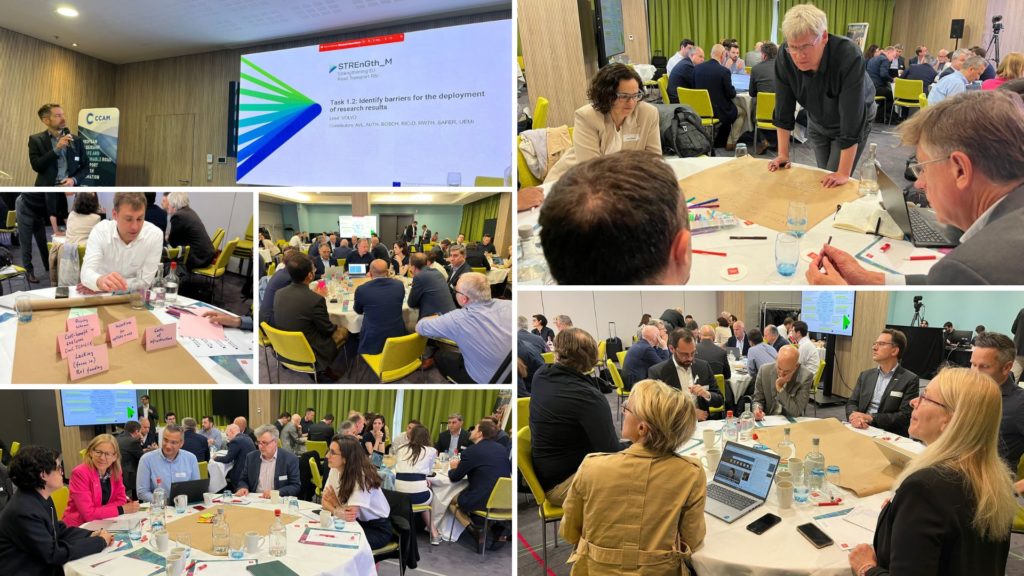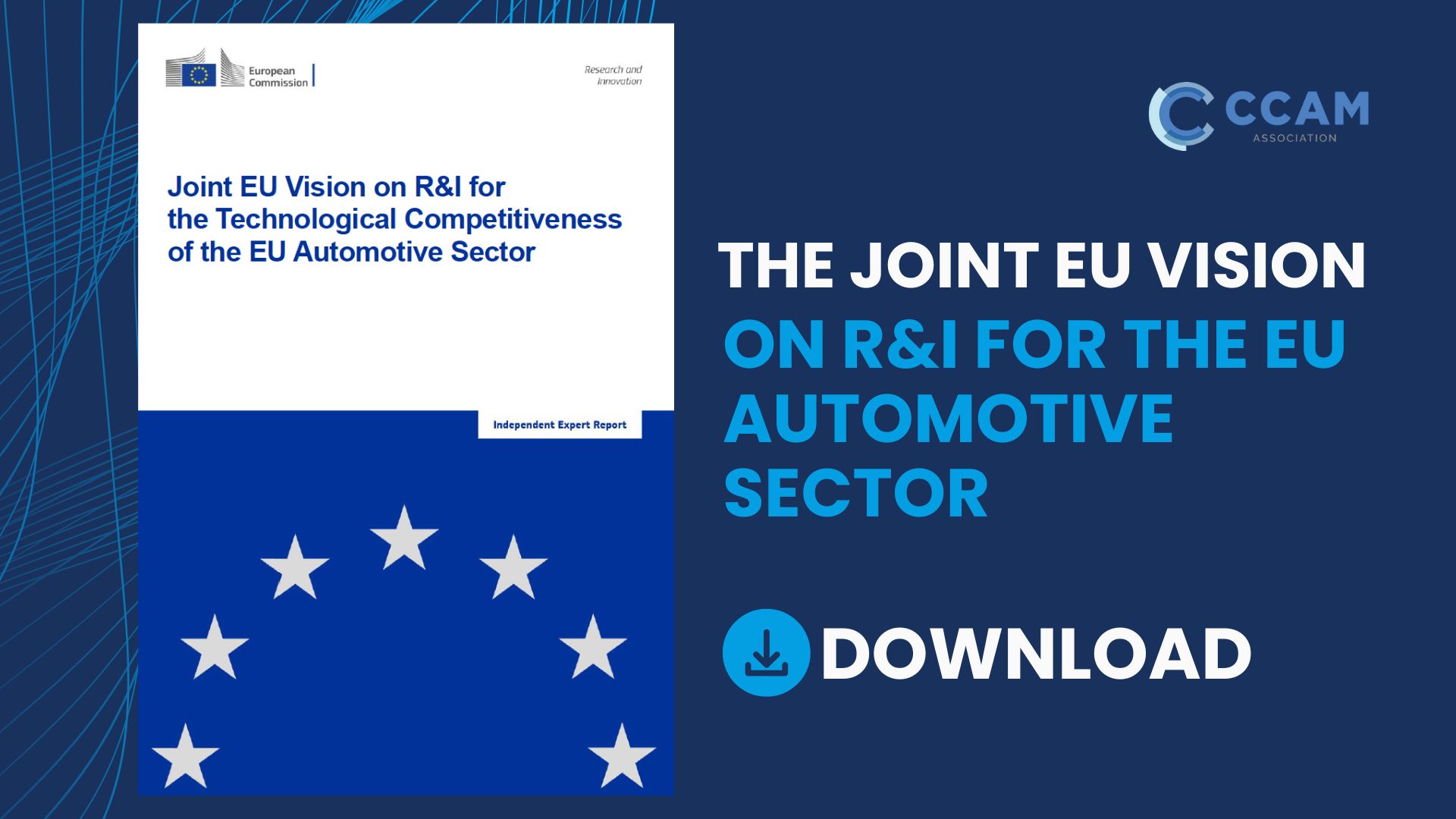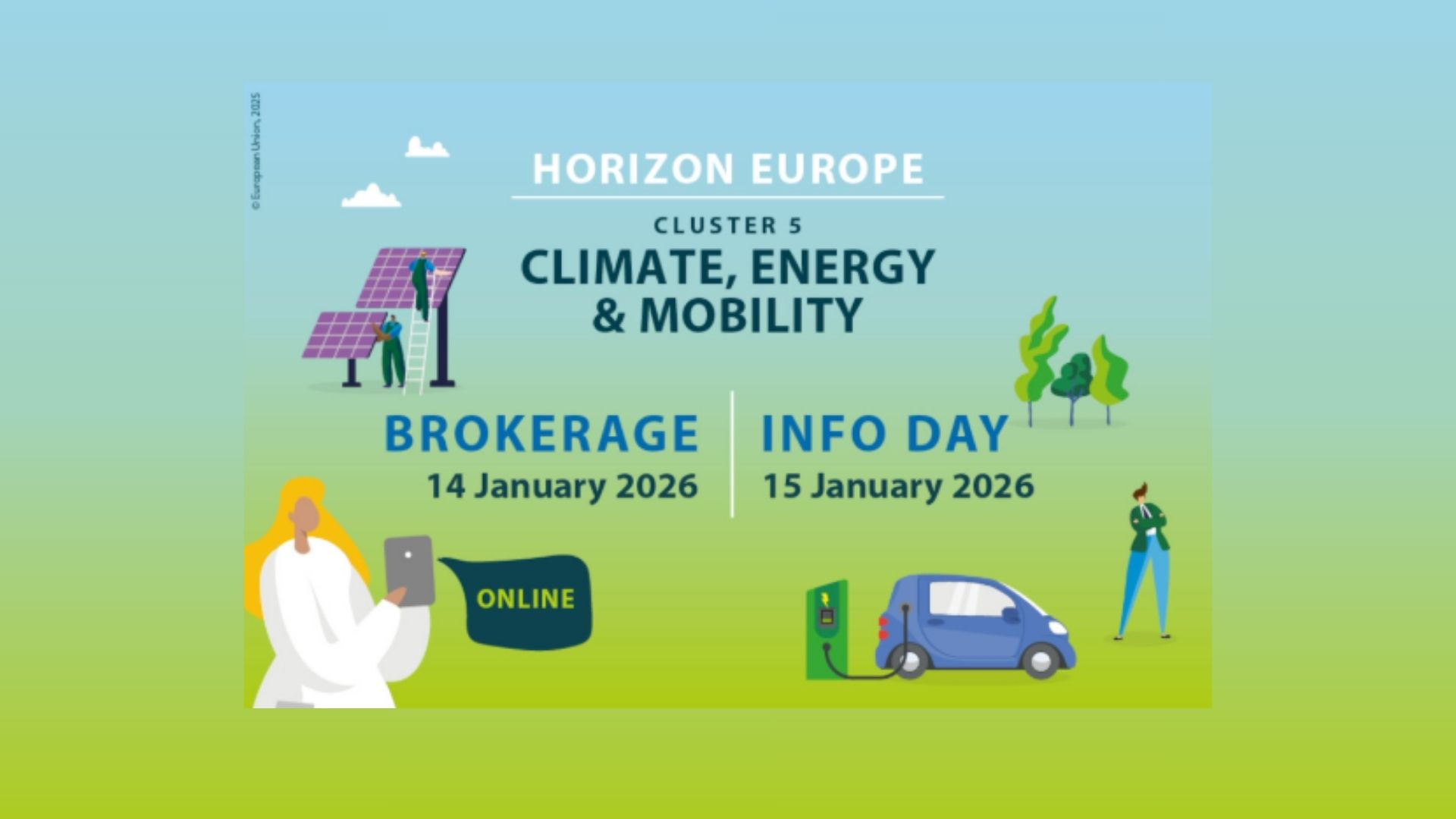CCAM Association General Assembly: Setting Priorities for Partnership Development and Welcoming New Members
The CCAM Association held its General Assembly in hybrid setting on June 4 in Brussels and online, bringing together its members, institutional partners, and European Commission representatives to assess the current state of connected, cooperative, and automated mobility (CCAM) and to align on the next steps in its development.
The meeting started by welcoming 10 new members, further strengthening the Association’s cross-sectoral community.
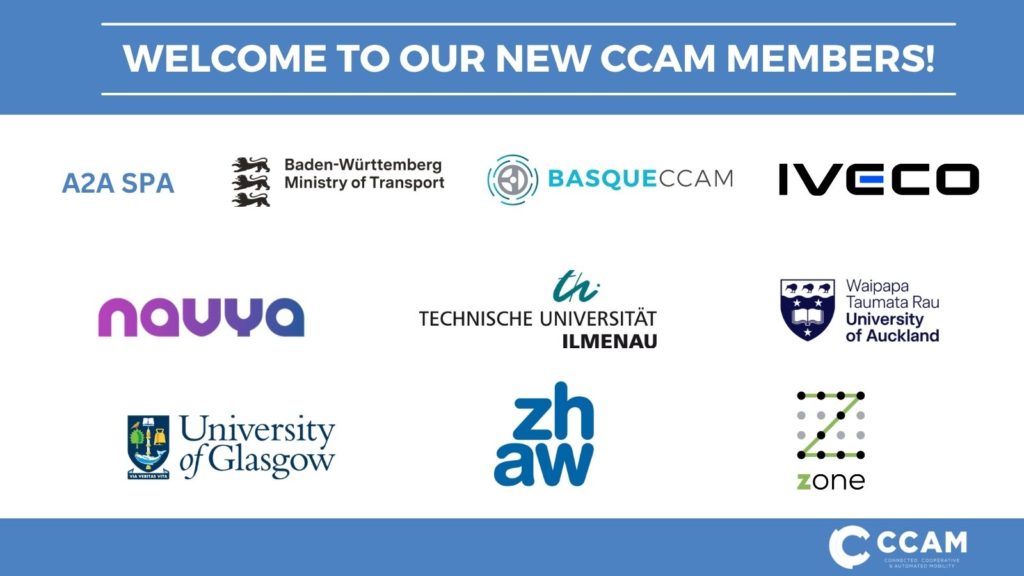
Additionally, one new CCAM Partnership Delegation representative, Núria Parera (IDIADA), for the member category: Other services: insurance, maintenance, repair, etc. was elected, joining the club of association representatives to support the CCAM Partnership’s governance structure. Laurianne Krid (FIA) was re-elected to her position as Partnership Delegation representative for the member category: Civil Society Representation.
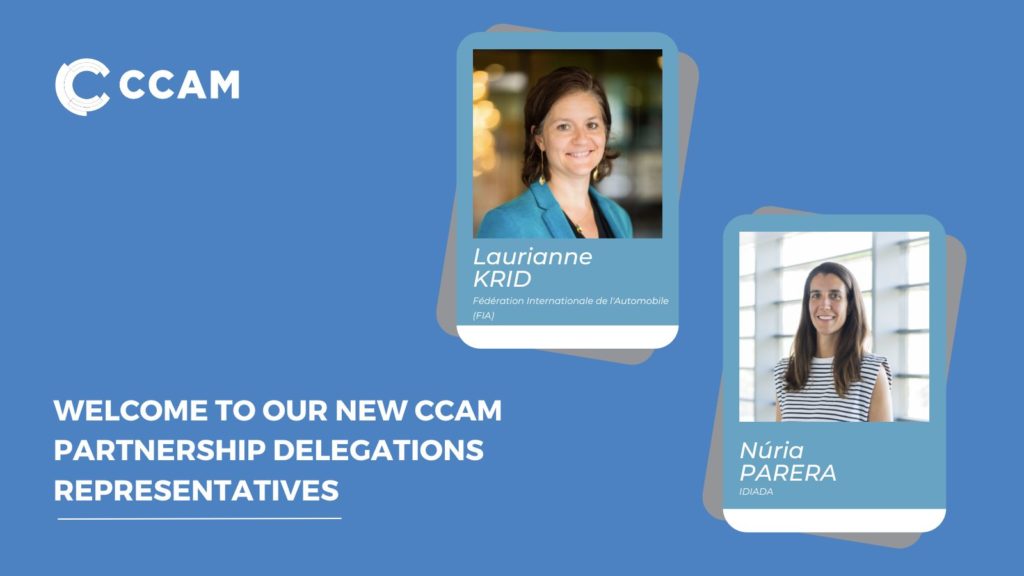
European Commission representatives, Jane Amilhat (DG RTD), Stefan Bogensberger (DG CNECT) and Lee Bugeja Bartolo (DG MOVE), followed with an insightful presentation on the preparation of the Competitiveness Fund / Framework Programme 10 (FP10) and the future Automotive Joint Undertaking / Partnership, as well as the ongoing alignment with the European Connected and Autonomous Vehicle Alliance (ECAVA). These presentations helped frame the policy and funding landscape in which CCAM research and deployment efforts will evolve in the coming years.
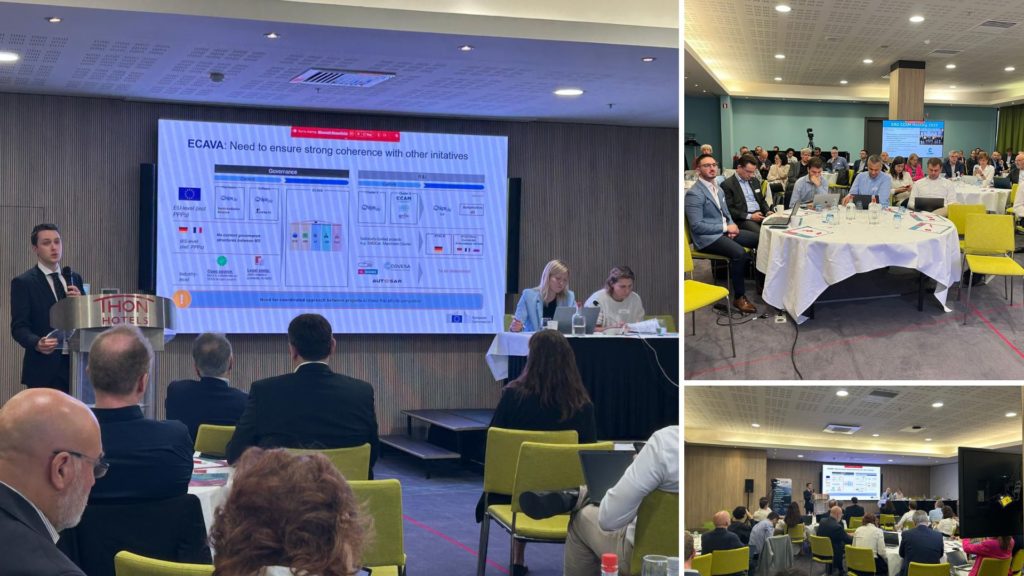
A panel discussion featuring European Commission representatives and Christian Merkt, Chairman of the CCAM Association, provided a timely exchange under the moderation of Marzena Jougounoux on what the implications are for CCAM stemming from the Automotive Action Plan (such as testbeds, regulatory sandboxes, etc.) and on the future of the Partnership.
Participants also gained insights from the EU Agency for the Space Programme (EUSPA) on the value of Galileo’s high-accuracy and trustworthy signal, and the promising potential of future SATCOM capabilities.
Galileo plays a key role in supporting automated driving by strengthening GNSS (Global Navigation Satellite Systems) with more robust and reliable signals. Galileo’s added-value services enhance safety of the vehicle (position accuracy thanks to Galileo High Accuracy Service) and its security (position trustability thanks to Galileo Navigation Message Authentication). The SATCOM (Satellite Communications) capabilities offered through the IRIS², the new EU Secure Connectivity system, will provide secure, autonomous, high-quality, reliable, and cost-effective satellite communication for governmental use, while also enabling commercial services at scale such as mobile and fixed broadband, B2B services, satellite connectivity for transport (ships, airplanes, drones, connected cars), and cloud-based services
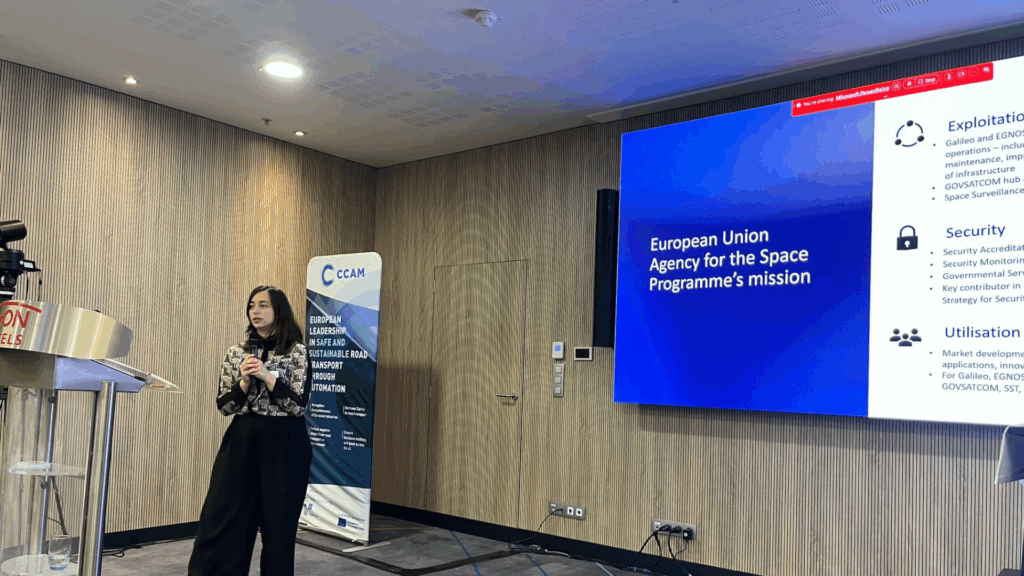
It was followed by interactive breakout discussions where the CCAM Members explored specific challenges and barriers for deployment of CCAM research results along six key dimensions:
- Knowledge & technology
- Collaboration and user involvement
- Regulation & standardisation
- Infrastructure (physical, digital, and energy-related)
- Funding and financing
- Demand and viable business cases
These discussions helped identify common obstacles and potential actions to accelerate the implementation of CCAM solutions at scale in the future.
